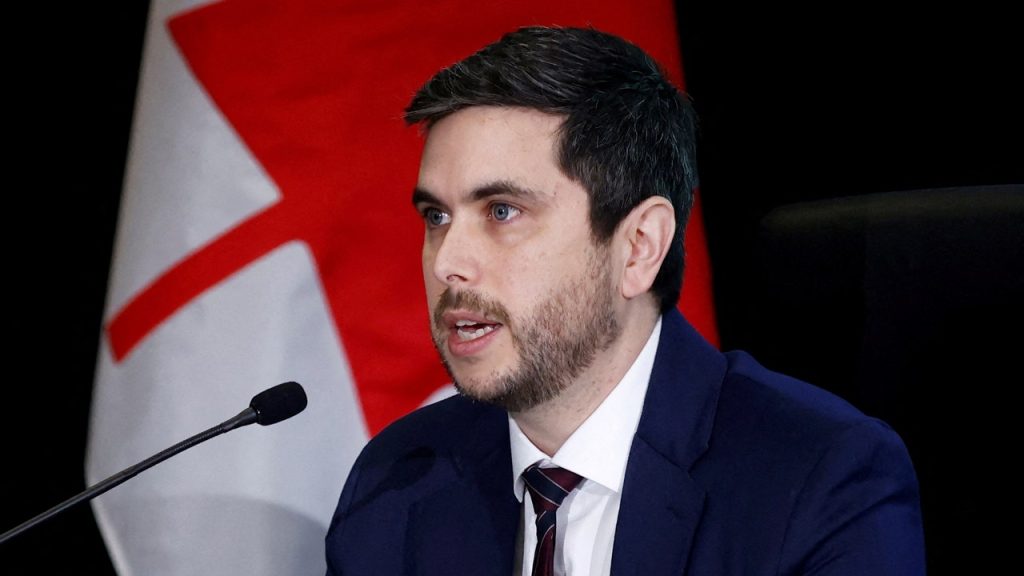Canadian Intelligence Chief Warns of Rising Youth Terrorism Threat
In a sobering address that highlighted the evolving landscape of national security threats, Canadian Security Intelligence Service (CSIS) Director Daniel Rogers revealed disturbing trends in youth radicalization during a rare public appearance. His warnings paint a picture of a generation increasingly vulnerable to online extremism, with potentially devastating consequences for public safety.
Since 2014, Canada has experienced nearly two dozen violent extremist attacks resulting in 29 deaths and at least 60 injuries, according to Rogers. What’s particularly alarming is the growing involvement of minors in terrorism investigations—nearly one in ten CSIS terrorism cases now involve at least one person under the age of 18. This troubling pattern was illustrated by several recent cases, including the August arrest of a minor in Montreal allegedly planning an attack on behalf of Daesh (ISIS), and a 15-year-old in Edmonton charged with terrorism-related offenses. Perhaps most disturbing was the case of two 15-year-olds arrested in Ottawa for allegedly conspiring to conduct a mass casualty attack targeting the Jewish community in Canada’s capital between late 2023 and early 2024. These cases demonstrate that “radicalized youth can cause the same harms as radicalized adults,” though Rogers noted that societal support systems for youth may help detect and prevent radicalization at earlier stages.
The digital landscape has fundamentally transformed how extremism spreads and takes root in vulnerable minds. Rogers specifically mentioned COM/764, a transnational violent online network that manipulates children and youth across widely accessible online platforms. This example highlights how the internet has become a breeding ground for extremist ideologies that target impressionable young people. “Many who turn to violence radicalize exclusively online, often without direction from others,” Rogers explained. “They use technology to do so secretly and anonymously, seriously challenging the ability of our investigators to keep pace and to identify and prevent acts of violence.” The CSIS director identified “eroding social cohesion, increasing polarization and significant global events” as creating “fertile ground for radicalization,” suggesting that broader societal tensions are contributing to individual vulnerability to extremist messaging.
In response to these emerging threats, CSIS has intensified its counterterrorism operations. Rogers revealed that since 2022, the agency has been involved in disrupting at least 24 violent extremist actions, each resulting in arrests or terrorism peace bond charges. In 2024 alone, CSIS played a crucial role in disrupting two Daesh-inspired plots: one involving a father and son allegedly planning an attack in the Toronto area, and another where an individual was arrested before allegedly attempting to illegally enter the United States to attack members of the Jewish community in New York. These successful interventions demonstrate the vital work being done behind the scenes by Canada’s intelligence community to protect both Canadian and American lives. The agency has also taken proactive educational steps, joining with the RCMP and intelligence partners from the United States, United Kingdom, Australia, and New Zealand to release a joint report on youth radicalization aimed at helping parents and guardians recognize early warning signs.
Beyond domestic terrorism, Rogers highlighted the growing threat of transnational repression—efforts by foreign governments to harass, intimidate, or harm their critics living abroad. While CSIS has traditionally focused on transnational repression by countries like China and India, Rogers noted a particularly alarming shift in the past year: “We’ve had to reprioritize our operations to counter the actions of Iranian intelligence services and their proxies who have targeted individuals they perceive as threats to their regime.” In multiple cases, this involved detecting and disrupting potentially lethal threats against individuals on Canadian soil. This revelation underscores the complex interplay between global geopolitics and domestic security concerns, with Canada increasingly finding itself caught in the crosshairs of international tensions.
The challenges outlined by Rogers represent a wake-up call for Canadian society and governments worldwide. The convergence of youth vulnerability, online radicalization, domestic terrorism threats, and foreign interference creates a complex security environment that demands sophisticated, multi-faceted responses. While the CSIS director’s remarks were focused on Canadian security concerns, they reflect broader global patterns that security services around the world are grappling with. The involvement of minors in terrorism investigations raises difficult questions about how societies can protect young people from radicalization while also safeguarding public safety. As Rogers suggested, early intervention is crucial, but this requires heightened awareness among parents, educators, and communities about the warning signs of radicalization. The intelligence chief’s rare public address serves as both a warning and a call to collective action—acknowledging that the security challenges of the 21st century cannot be addressed by intelligence agencies alone but require the engagement of society as a whole.


